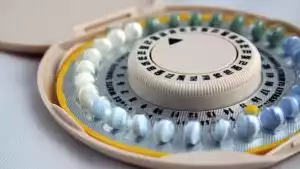
Contraception After Medical Abortion: An Essential Guide
Medical abortion is a commonly chosen method to terminate early pregnancy, typically within the first ten weeks. It involves the usage of medications that end a pregnancy by removing the fetus and placenta from the uterus. However, it’s crucial to recognize that even after an abortion, fertility usually restores rapidly, and women can be subject to unplanned pregnancies if unprotected sexual intercourse occurs. Hence, it is paramount to consider contraceptive measures post-abortion.
Return of Fertility
Post-abortion, ovulation can resume within a few weeks, at times even before the first menstrual cycle. This puts women at risk of becoming pregnant almost immediately after an abortion if they indulge in unprotected sex.
Types of Contraception
There are several types of contraceptives that can be initiated soon after a medical abortion:
- Hormonal Methods: These include birth control pills, patches, injectables, and vaginal rings. They are highly effective and can typically be started the day following the abortion.
- Intrauterine Devices (IUD’s): IUD’s are a long-term but reversible contraceptive method. There are two types — hormonal and copper. Both can be inserted immediately after the abortion procedure in the clinic.
- Barrier Methods: Including condoms, diaphragms, and cervical caps, they can be used as necessary.
- Implants: These are small rods inserted beneath the skin that can provide contraception for up to 3–5 years.
- Emergency Contraception: Also known as the ‘morning-after pill,’ it should be used when other contraception methods fail.
- Natural Methods: Methods like fertility awareness are also an option, but these require discipline awareness and are less reliable than other methods.
Importance of Effective Contraception
Effective contraception has a dual role — it allows people to plan their families and minimize the risk of unplanned pregnancies. It will enable individuals to decide when and if they want to have children. Moreover, contraception can help prevent a cycle of repeated abortions.
Choosing the Right Contraceptive
The choice of contraception varies among individuals and depends on their health, frequency of sexual activity, the number of sexual partners, and their desire for future childbearing. It is advisable to discuss with healthcare providers to choose the suitable contraceptive method.
Privacy and Accessibility
It’s essential that contraception is provided in a confidential, accessible, and non-judgmental environment. Women should feel empowered to make decisions about their bodies and reproductive lives.
In conclusion, contraception forms a vital element of care after medical abortion. It is a crucial step to prevent unintended pregnancies and is safe for women’s reproductive health and well-being.
Always remember to consult a healthcare professional to decide the most suitable contraceptive method for you. This information provides a general guideline and may not apply to everyone.
Every woman’s body reacts differently; what works best for you may not work well for others. What’s important is to make informed decisions in consultation with your healthcare professional, and review these decisions regularly to ensure they still meet your needs. It’s your body, and you can make decisions that best suit your lifestyle and plans.
Contraception and Periods
Following a medical abortion, the next period typically resumes within 4 to 6 weeks. However, hormonal contraceptives like birth control pills, patches, and vaginal rings can influence the return of menstrual cycles, often making them lighter and more predictable. An IUD may initially cause heavier and more extended periods, especially the copper IUD, but these usually get better over time.
Contraception and Breastfeeding
If you are nursing post-abortion, it’s essential to choose a contraceptive that doesn’t interfere with breastfeeding. Progestin-only contraceptives, such as the implant, the progestin-only pill, or injectables, as well as non-hormonal methods, such as IUD’s, condoms, and natural methods, are safe and won’t affect milk production.
Common Misconceptions About Contraception Post-Abortion
Some women believe that they can’t get pregnant immediately after a medical abortion or while they are breastfeeding, which is not valid. As highlighted earlier, fertility can return within a few weeks post-abortion. Furthermore, although breastfeeding can delay the return of regular ovulation and menstrual cycles, it doesn’t assure contraceptive protection.
Potential Side Effects of Contraception
Like any medication, contraception may have side effects, though most women tolerate them well. Common side effects of hormonal contraceptives include mood changes, nausea, spotting, and breast tenderness. Copper IUD’s can cause heavier periods. Barrier methods may cause allergic reactions, while natural methods need meticulous tracking and don’t offer high contraceptive efficacy.
Despite potential side effects, it is essential to remember that the benefits of contraception notably outweigh the risks. It helps prevent unintended pregnancies, allowing women to control their reproductive health choices.
Interactive Approach to Contraception
Healthcare providers play an essential role in counseling and guiding women to make informed choices about contraception post-abortion. The discussion should be personalized and respectful, considering the woman’s specific needs, lifestyle, priorities, and potential health risks.
Author
 Dr. Kopp Kallner. M.D. in Obstetrics & Gynecology, Columbia University Medical School.
Dr. Kopp Kallner. M.D. in Obstetrics & Gynecology, Columbia University Medical School.
Buy Abortion Pills

 Français
Français Deutsch
Deutsch Español
Español Русский
Русский